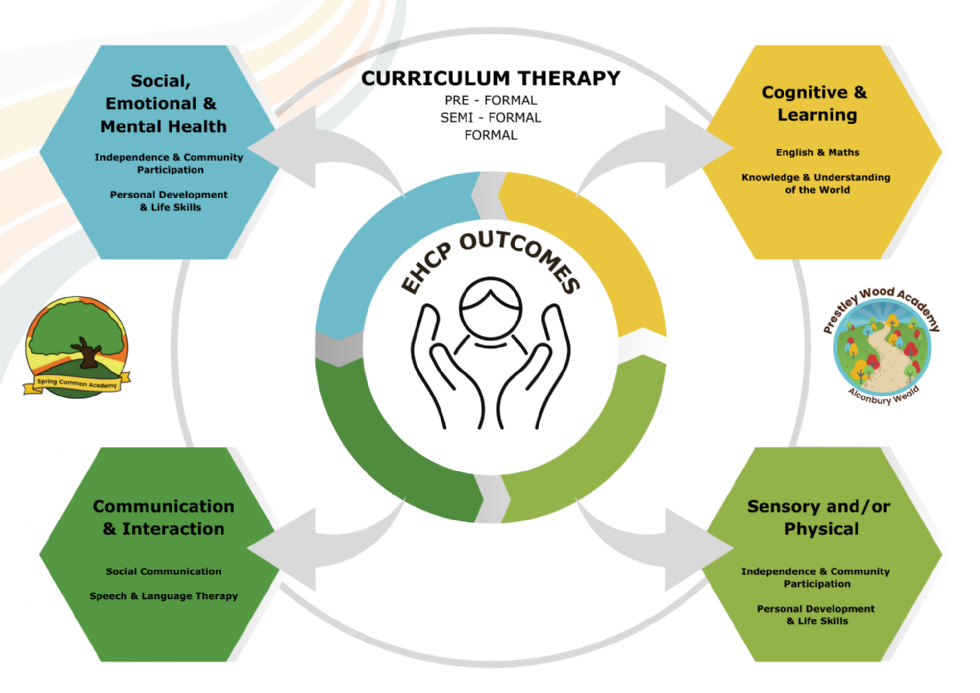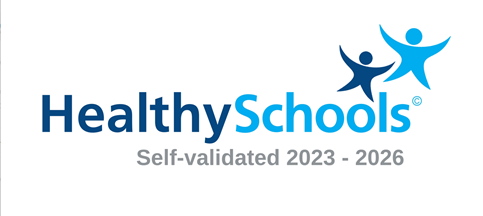Pathways

Pre-Formal
Our pre-formal curriculum recognises that people with PMLD and complex SLD have unique aptitudes and means of experiencing the world around them. We provide a broad, balanced, engaging curriculum which has the individual needs of the learner at the centre to ensure meaningful progression.
The pre-formal curriculum promotes learning through sensory exploration, early communication and therapies. The focus in the pre-formal curriculum is on the foundations of cognition, communication, and emotional and social development. Every moment is seen as an opportunity to interact and communicate.
The pre-formal curriculum is an integrated curriculum accessed through personalised support. Learners interact with the world around them through observing and exploring that world. Sensory exploration provides opportunities for pre-formal learners to encounter the world and to develop their curiosity. Themes are planned across their school journey to add breath of experience and build early communication and independence skills.
A holistic and personalised approach is taken to learning which incudes the pupil's EHCP targets. Individual progression and assessment are recognised and celebrated in lessons. Learners are supported by the Engagement model and Routes for Learning assessment outcomes. Key approaches and interventions include:
Self Help and Independence/Social, Emotional and Mental Health: Nutrician plans, Personal and Intimate Care Plans, Characteristics of Effective Learning, story massage, intensive interaction, positive touch
Sensory/Physical: Hydrotherapy, postural care plans, physiotherapy, sensory exploration, Resonance board, science, music and art interaction, Body awareness
Communication and Interaction: Engagement for Learning, Makaton, Symbols, PECS, Intensive Interaction, On Body Signing, Objects of Reference, Songs of Reference, AAC, Eye Gaze, Positive Touch, Story Massage
Cognition and Learning: Letters and Sounds, Early Writing and Reasoning sequence documents, TAC PAC, Sensory Stories, Switch Progression Pathway, Environment Control and Immersive Days
Our pre-formal Curriculum has been designed to ensure that our learners are enabled through rigorous, immersive, appealing experiences while valuing and celebrating each individual for exactly who they are. We are ambitious about learning and where appropriate, pre-formal learners can access elements of the semi-formal curriculum pathway.
Semi-Formal
The semi-formal curriculum promotes learning through a broad and balanced curriculum, based on the National Curriculum at its root. It is developmentally appropriate and prepares pupils well for their next stage. The curriculum is driven through personalised targets from individual Education, Health and Care plans and is delivered through a full and creative approach to learning, where pupils are motivated and enthusiastic to learn at their own pace. Thinking skills, including the making of more abstract connections, are developed through themed approaches with focused learning opportunities that introduce content appropriate to the individual’s cognitive processing capabilities. We are ambitious about learning and where appropriate, semi-formal learners can access elements of the formal curriculum pathway.
The semi-formal curriculum focuses on the development and exploration of thinking skills for learners with severe and complex learning difficulties.
Teaching and learning experiences are delivered through carefully planned and balanced themes and topics relating to a broad range of subjects:
My Communication (Reading, Writing, Language development)
My Reasoning (Number, Geometry & Measurement)
Our World (Citizenship, RE, Humanities, Science, Computing)
My Creativity (Art, Music, Drama)
Myself (Personal Development, Health &Wellbeing, RSE, Personal Safety, PFA, WRL&CEIAG)
My Movement (Sensory Interaction, Physical Education/Development)
Our sequential learning documents for the key learning areas above set out our approaches and steps towards building skills and knowledge at the learner’s own pace. They are used by our specialist staff to plan at point of delivery for individual learners.
Semi-formal learners gain experience through structured problem-solving activities that build on previous informal experiences, where the driving force is curiosity—an interest in finding out.
For our semi-formal learners, feedback is related to their learning outcome, and focusses on their achievements.
Pupils may receive bespoke interventions to help remove barriers to learning such as sensory experiences, regular movement breaks, AAC, phonic reading approaches and the use of Attention Autism. Learning will be broken down into component skills and opportunities to revisit and consolidate learning are prioritised alongside being aspirational about what pupils can achieve.
This approach embeds understanding and allows skills to be generalised both in real life learning situations in school to real world learning opportunities out in the local community. The semi-formal curriculum ultimately works to enable pupils to be well prepared for their future as valued members of their communities.
Formal
The formal curriculum builds upon and extends the knowledge, skills and understanding introduced through the semi-formal curriculum, and is based on the National Curriculum. Formal learners have opportunities to access both academic and vocational accreditation.
The formal curriculum develops knowledge and skills through providing meaningful, engaging contexts for learning and appropriate accreditation. Life skills, independence and social communication skills form a crucial part of the curriculum. Enabling our learners to be independent, effective communicators who develop healthy attitudes and lifestyles in preparation for adulthood are our priorities. We use the classroom as the starting point to learn skills and knowledge which can then be transferred to real life situations. The curriculum uses real-world opportunities both at school and in community environments, driven by targets from individual Education, Health and Care plans to ensure that learning is personalised and builds intentionally towards individual outcomes in order to improve the life chances and opportunities of every young person.
To remove barriers to learning, pupils may require sensory input, use augmented and alternative communication including technologies or signs and symbols, support for physical needs, or learning to be broken down into smaller chunks or revisited several times in order for it to be retained. Many learners have an 'uneven' learning profile and to best support this, formal learners can access elements of the semi-formal curriculum where this is appropriate for them.
Our formal pathway is aspirational and encourages learners to develop their knowledge and skills in order to become valued citizens.



